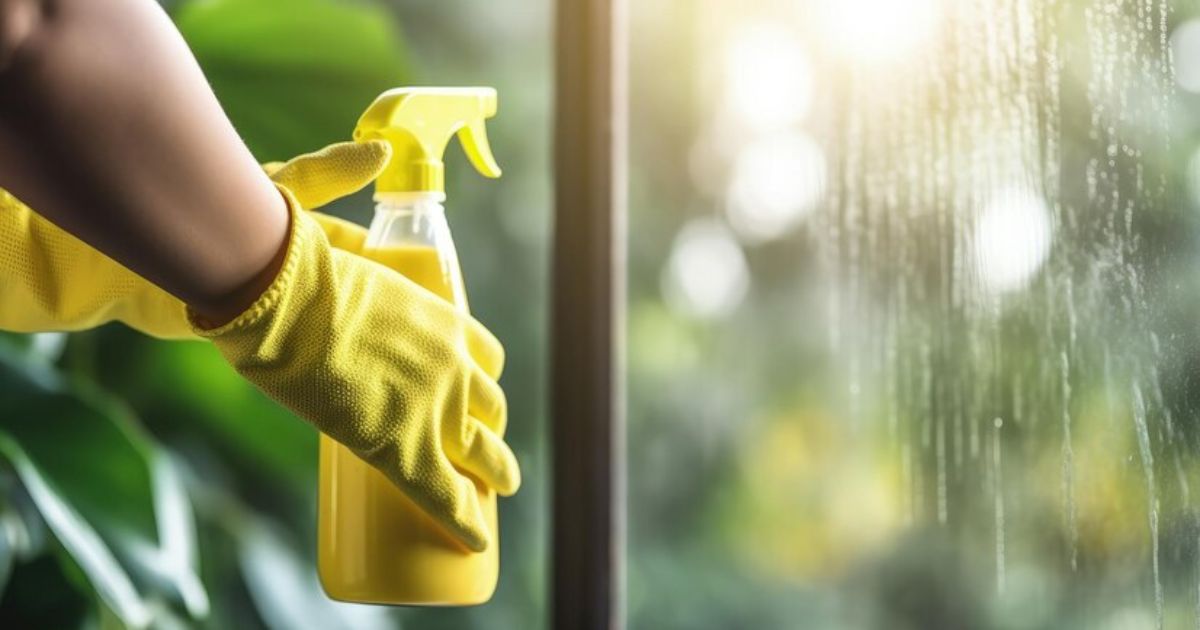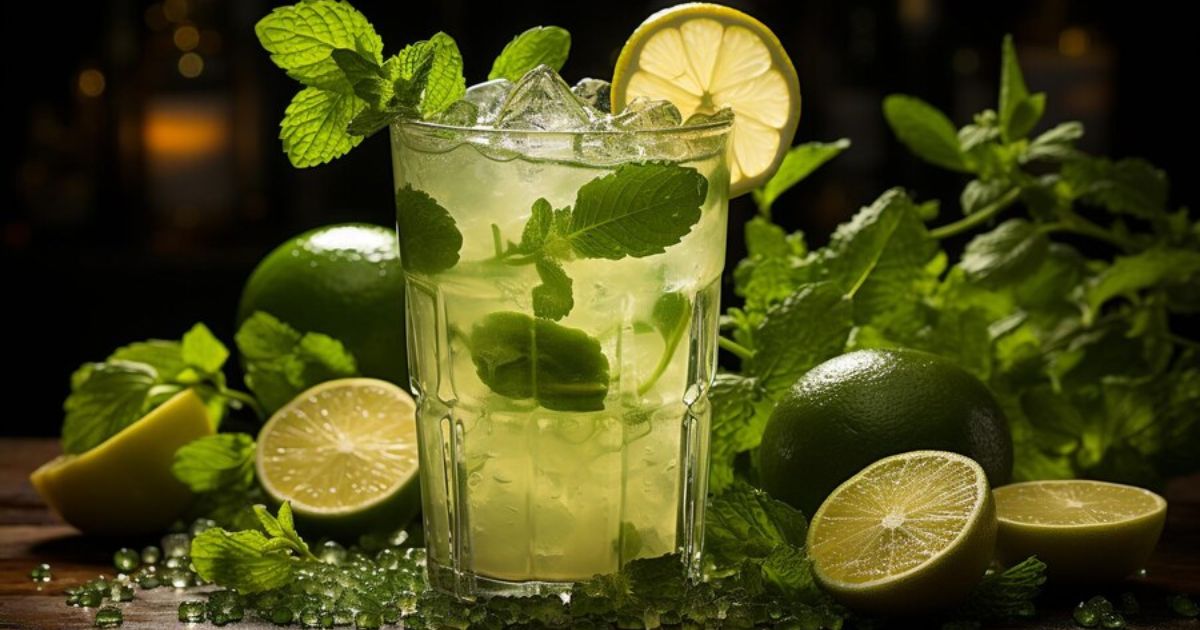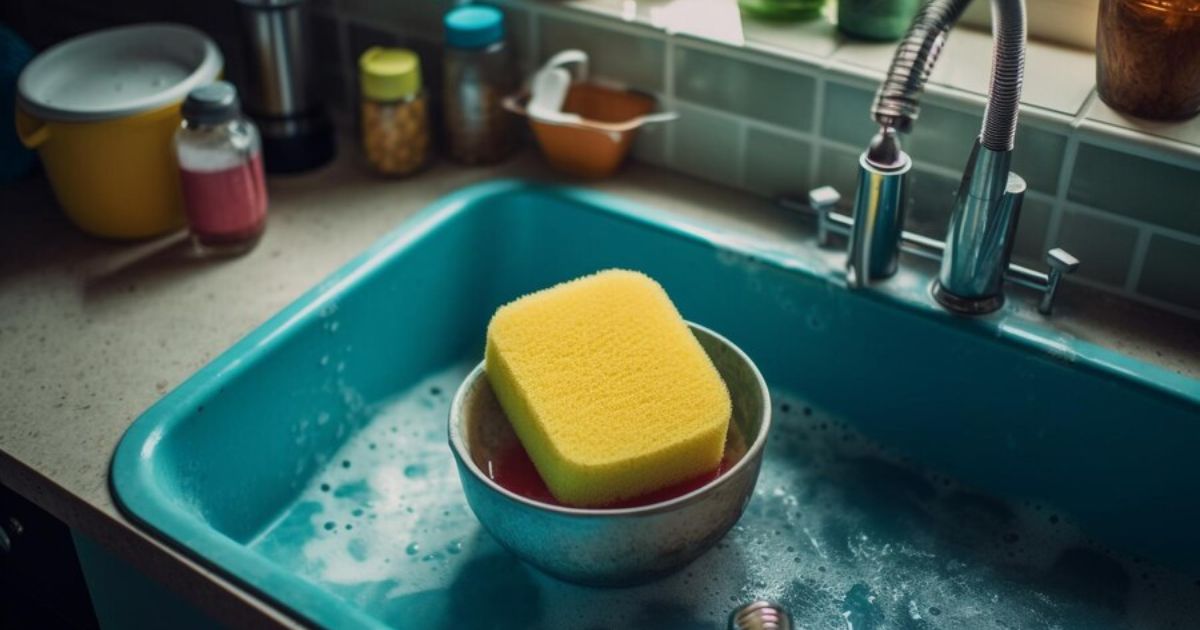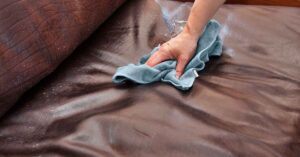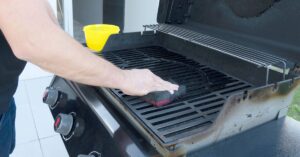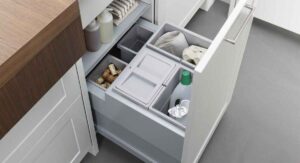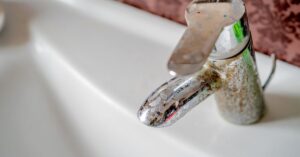“Discover the ultimate solution for cleaning dirty utensils and spotless windows with our comprehensive guide on the best homemade window cleaning solutions. From a simple vinegar and water mixture to a powerful blend of rubbing alcohol and water, we provide you with the knowledge and expertise to achieve professional results. With numerous options to choose from, our article explores the benefits and application methods of each solution, ensuring you can confidently achieve crystal-clear windows that will make your home or office shine.”
Key Takeaways
- Vinegar-based solutions are affordable, eco-friendly, and effective at removing dirt, grime, and streaks from windows.
- Citrus-based solutions offer a natural cleaning option with the added benefits of a pleasant fragrance and antibacterial properties.
- Soap-based solutions, particularly those with dish soap and warm water, are simple yet effective at cutting through grease, removing dirt and streaks, and leaving a streak-free shine.
- Alcohol-based solutions, such as rubbing alcohol and water, provide a quick-drying and customizable option for cutting through grease and sticky residue, disinfecting and sanitizing windows, and leaving a streak-free shine.
Vinegar and Water Solution
The vinegar and water solution is a popular choice for homemade window cleaning. This simple yet effective solution consists of equal parts vinegar and water, making it an affordable and eco-friendly option. Vinegar, a natural cleaner, helps remove dirt, grime, and streaks from windows without leaving behind any residue. It also has disinfectant properties, killing bacteria and germs that may be present on the glass surface.
Additionally, vinegar is safe to use on various types of windows, including glass, vinyl, and tinted windows. When combined with water, it creates a solution that is gentle enough to not damage the window but powerful enough to leave it sparkling clean. To use this solution, simply mix equal parts vinegar and water in a spray bottle, spray onto the window, and wipe clean with a lint-free cloth or newspaper.
Lemon Juice and Water Mixture
When considering alternative homemade window cleaning solutions, one option to explore is the lemon juice and water mixture. This simple yet effective solution offers several benefits:
- Natural cleaning agent: Lemon juice contains citric acid, which helps break down dirt and grime on windows.
- Pleasant fragrance: The fresh scent of lemons can leave your home smelling clean and inviting.
- Antibacterial properties: Lemon juice has natural antibacterial properties that can help kill germs and bacteria on your windows.
- Environmentally friendly: Using a lemon juice and water mixture eliminates the need for harsh chemicals, making it a more eco-friendly option.
- Cost-effective: Lemons are affordable and readily available, making this homemade solution a budget-friendly choice.
As we explore various homemade window cleaning solutions, the next section will delve into the benefits of using a dish soap and warm water blend.
Dish Soap and Warm Water Blend
To effectively clean your windows at home, consider using a blend of dish soap and warm water. This simple yet effective solution can help remove dirt, grime, and streaks from your windows, leaving them sparkling clean. Dish soap is designed to cut through grease and oil, making it an ideal ingredient for window cleaning.
When mixed with warm water, it creates a powerful cleaning solution that can easily tackle tough stains and smudges. To use this blend, combine a few drops of dish soap with warm water in a spray bottle or bucket. Then, use a soft cloth or sponge to apply the solution to your windows and gently scrub in a circular motion. Finally, rinse with clean water and dry with a lint-free cloth for a streak-free shine.
Rubbing Alcohol and Water Combination
For an effective homemade window cleaning solution, consider using a combination of rubbing alcohol and water. This simple yet powerful mixture can effectively remove dirt, grime, and streaks from your windows, leaving them sparkling clean. Here are five reasons why rubbing alcohol and water combination is an excellent choice for window cleaning:
- Effectively cuts through grease and sticky residue, ensuring a thorough clean.
- Dries quickly, reducing the chances of streaks or water spots on your windows.
- Helps to disinfect and sanitize the glass surface, making it ideal for high-touch areas.
- Leaves behind a streak-free shine, enhancing the overall appearance of your windows.
- Can be easily customized by adjusting the ratio of rubbing alcohol to water, depending on the level of dirt and grime.
Ammonia and Water Solution
Regularly incorporating an ammonia and water solution into your window cleaning routine can effectively remove stubborn stains and leave your windows looking crystal clear. Ammonia is a powerful cleaning agent that cuts through grease, grime, and dirt, making it an ideal ingredient for tackling tough window stains. When mixed with water in the right ratio, ammonia can provide a streak-free shine and restore the transparency of your windows.
To create an ammonia and water solution, simply mix equal parts of ammonia and water in a spray bottle. It’s important to keep in mind that ammonia should never be mixed with bleach or other household cleaners, as it can produce toxic fumes. Additionally, make sure to properly ventilate the area when using ammonia, as it can have a strong odor.
Cornstarch and Vinegar Paste
How can cornstarch and vinegar be combined to create an effective homemade window cleaning paste? When mixed together, cornstarch and vinegar form a powerful cleaning solution that can effectively remove dirt, grime, and streaks from windows. Here are five reasons why this combination is a great choice for homemade window cleaning:
- Natural ingredients: Cornstarch and vinegar are both natural ingredients that are safe to use and environmentally friendly.
- Gentle on surfaces: This paste is gentle on window surfaces, making it suitable for use on various types of glass.
- Streak-free shine: The combination of cornstarch and vinegar helps to achieve a streak-free and crystal-clear finish on windows.
- Cost-effective: Making your own window cleaning paste using cornstarch and vinegar is a cost-effective alternative to store-bought cleaners.
- Versatile: This paste can also be used to clean other glass surfaces, such as mirrors and glass tabletops.
Club Soda for Spotless Windows
Club soda can effectively remove spots and stains from windows, leaving them spotless and sparkling. Its carbonation and mineral content help to break down grime and dirt, making it an excellent choice for window cleaning. To use club soda as a window cleaner, simply pour it into a spray bottle and spritz it onto the glass.
Then, wipe the window clean with a microfiber cloth or squeegee. The bubbles in the club soda work to lift away dirt and smudges, while the minerals help to dissolve stubborn stains. Once dry, your windows will be crystal clear and streak-free. However, if you prefer a homemade window cleaner with a pleasant scent, you may want to try making a DIY essential oil window cleaner.
DIY Essential Oil Window Cleaner
To enhance the cleaning power and add a pleasant aroma to your homemade window cleaner, incorporating essential oils is a great option. Essential oils not only provide a natural and chemical-free alternative to commercial window cleaners but also offer additional benefits. Here are five essential oils that you can use to make your DIY window cleaner:
- Lemon essential oil: Known for its strong cleaning properties and refreshing scent.
- Tea tree essential oil: Has antimicrobial properties and helps to remove dirt and grime from windows.
- Lavender essential oil: Adds a calming and soothing aroma to your window cleaner.
- Peppermint essential oil: Leaves a fresh and invigorating scent while effectively cleaning your windows.
- Eucalyptus essential oil: Known for its antibacterial and antiviral properties, it can help disinfect your windows.
FAQ,s
What Are the Potential Risks or Side Effects of Using Vinegar and Water Solution for Window Cleaning?
When using a vinegar and water solution for window cleaning, there are some potential risks or side effects to be aware of. These may include damage to certain types of surfaces or materials, such as marble or granite, and a lingering vinegar odor.
Can Lemon Juice and Water Mixture Be Used Safely on All Types of Windows, Including Tinted or Coated Windows?
A lemon juice and water mixture can safely be used on most types of windows, including tinted or coated windows. However, it is always recommended to test the solution on a small, inconspicuous area first to ensure compatibility.
Is It Necessary to Rinse off the Dish Soap and Warm Water Blend After Cleaning the Windows?
It is not necessary to rinse off the dish soap and warm water blend after cleaning the windows. However, it is recommended to wipe the windows with a clean, damp cloth to remove any residue.
How Does Rubbing Alcohol and Water Combination Compare to Other Homemade Solutions in Terms of Streak-Free Cleaning?
The rubbing alcohol and water combination is a popular homemade window cleaning solution. It is known for its streak-free cleaning abilities. This solution compares favorably to other homemade solutions due to its effective and efficient cleaning properties.
Are There Any Precautions or Safety Measures to Consider When Using Ammonia and Water Solution for Window Cleaning?
When using an ammonia and water solution for window cleaning, it is important to take precautions and follow safety measures. Ammonia can be harmful if not used properly, so consider using gloves and working in a well-ventilated area.
Conclusion
In conclusion, there are various homemade window cleaning solutions available, each with its own benefits and drawbacks. Experimenting with different combinations of ingredients can help you find the best solution for your specific needs. However, it is important to remember that no matter which solution you choose, regular cleaning and maintenance are key to achieving spotless and clear windows.
